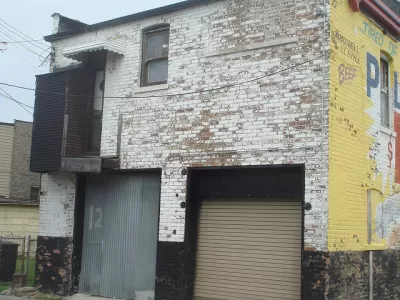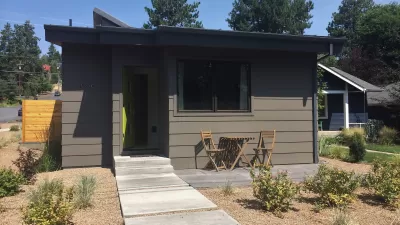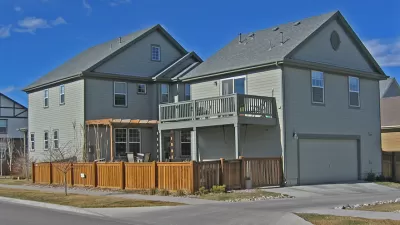Facing the potential for accessory dwelling units to win swift legalization in Chicago inspires one columnist to push back.

The city of Chicago banned the development of coach houses, the local term used to describe accessory dwelling units, in 1957, and according to Chicago Tribune columnist Eric Zorn, the city failed to ask, or answer, the following question: "Do we really want to ban them?"
Face forward to 2020, and the Chicago City Council is considering an ordinance to legalize ADUs with the support of Mayor Lori Lightfoot. Now, writes Eric Zorn, the city should ask itself the opposite question: "Do we really want to lift this ban?"
According to Zorn, the city had good reasons to implement the ban, like concerns about parking and neighborhood character. Zorn also advocates for a local veto of ADU enabling zoning changes: "The proposed change contains no provision for precincts to vote to exempt their areas from the construction of ADUs and no limit on the number of external, back-of-the-lot cottages or internal basement apartments that could open up in any one block."
FULL STORY: Column: Wait a sec! Is it really time to re-legalize granny flats 63 years after Chicago banned them?

Trump Administration Could Effectively End Housing Voucher Program
Federal officials are eyeing major cuts to the Section 8 program that helps millions of low-income households pay rent.

Planetizen Federal Action Tracker
A weekly monitor of how Trump’s orders and actions are impacting planners and planning in America.

Ken Jennings Launches Transit Web Series
The Jeopardy champ wants you to ride public transit.

California Invests Additional $5M in Electric School Buses
The state wants to electrify all of its school bus fleets by 2035.

Austin Launches $2M Homelessness Prevention Fund
A new grant program from the city’s Homeless Strategy Office will fund rental assistance and supportive services.

Alabama School Forestry Initiative Brings Trees to Schoolyards
Trees can improve physical and mental health for students and commnity members.
Urban Design for Planners 1: Software Tools
This six-course series explores essential urban design concepts using open source software and equips planners with the tools they need to participate fully in the urban design process.
Planning for Universal Design
Learn the tools for implementing Universal Design in planning regulations.
Ada County Highway District
Clanton & Associates, Inc.
Jessamine County Fiscal Court
Institute for Housing and Urban Development Studies (IHS)
City of Grandview
Harvard GSD Executive Education
Toledo-Lucas County Plan Commissions
Salt Lake City
NYU Wagner Graduate School of Public Service




























